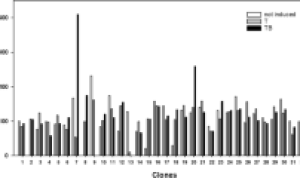P. K. Hoffmann is a researcher/academic with a background in natural and social sciences. Born in a country that doesn’t exist anymore, she now explores lands real and unreal.
Search author on:PubMedGoogle Scholar
You watch how to find, remove and prepare the seeds; how to use the pestle to grind them against the stone. You watch and repeat. You learn. You grind the seeds, add water. Someone tries spreading the paste onto a hot stone. You watch, you try, you repeat, you learn.
You heat water, you add fat. You add kurrat, coriander, leek, garlic. You break up and crush dried sourdough and scatter it over the broth before removing the pot from the fire. Later, someone presses the recipe into wet clay.
You take peas and soak them until they are soft, then boil them. You chop onions and parsley, add them. You take bread, cut it into thick slices, and pour everything over it. Someone later records it on parchment, adding salt and toasted white bread for those better off than you.
You argue with the others over who will keep Grandma’s recipe book, her slanted handwriting enduring under smudges of grease and flecks of dried dough. In the end, you draw straws to decide. You win. You open the treasure, but search in vain for how to prepare the family stew. She passed away without ever writing it down. With the others’ help, you eventually piece it together. In your curly script, you add the recipe to the battered book, then copy it out on your typewriter to share with everyone.
Read more science fiction from Nature Futures
Read more science fiction from Nature Futures
You sit at home, alone, and post:I’m becoming a quarantine cook! First time making every meal from scratch. Called aunt & uncle for recipe: olive oil, chickpeas, lentils, tomatoes, onion, salt, ginger, cloves, turmeric, chilli, cumin, spinach, lemon juice, yogurt to top. Yum! #QuarantineCooking #OldFamilyRecipe
You walk past the lunch-time printer queue to the printer in the corner that hardly anyone ever uses.Welcome, your X.CeNa is ready. You navigate the menu, ponder your options, select stew.Add protein cubes?Yes.Add mineral and vitamin supplements?Yeah, why not.Select spice level. You know your input won’t matter because the spice-dosage setting is broken. The food will always come out fiery hot — just the way you like it. You grin; one might think someone broke it on purpose.Your stew will be ready in: 3 minutes.
You can’t bring much, but you can bring memory crystals (the expensive ones, they advised, that won’t be corrupted by cosmic radiation). You store music, holos, v-books and hand-me-down recipes.Old school, they teased you,who needs recipes these days?You watch as the generation ship fills, tightly gripping the small crystal case to calm your nerves.
Gain free access to this article, as well as selected content from this journal and more onnature.com
doi: https://doi.org/10.1038/d41586-025-01974-4
For the future by Pietro Aronica
Digging foxholes in the dark by Wendy Nikel
Archaeology field notebook by Lesley L Smith
The Age of Reason by Gretchen Tessmer
The visitors by Christopher Linforth
Romeo and the robots by Gareth D Jones
Wild strawberries on Mars by Stephen L Antczak
Within dead branches by Andy W Taylor
Unicorn slippers in space by Katie Cervenec
Some assembly required by Russell Nichols
Disconnections by Marissa Lingen
Medical records from the Center for the Study of Temporal Disorders, Pediatric Department by Diana Peterfreund
Little Shop of Dreams by Thomas Barlow
Dear Leader by Redfern Jon Barrett
Future legal by D Thomas Minton
Meet the engineer using deep learning to restore Renaissance art
Make the study of human flourishing a global priority
Happy birthday Jaws! How the movie changed shark science
Founded in 2018, Westlake University is a new type of non-profit research-oriented university in Hangzhou, China, supported by public a…
The University of Toronto now recruiting for the Eric and Wendy Schmidt AI in Science Postdoctoral Fellowship. Valued at $85,000 CDN per year.
The Integrated Science Lab (IceLab) offers three postdoctoral scholarships that will be affiliated with one of six possible multidisciplinary projects
Aim to a global leader in materials science research society, and create a diverse, innovative, and collaborative research environment
Department of Frontier Materials, Suzhou Laboratory
The Max Planck Institute of Molecular Cell Biology and Genetics (MPI-CBG) in Dresden, Germany, is seeking an outstanding individual to fill the po…
Max Planck Institute of Molecular Cell Biology and Genetics


